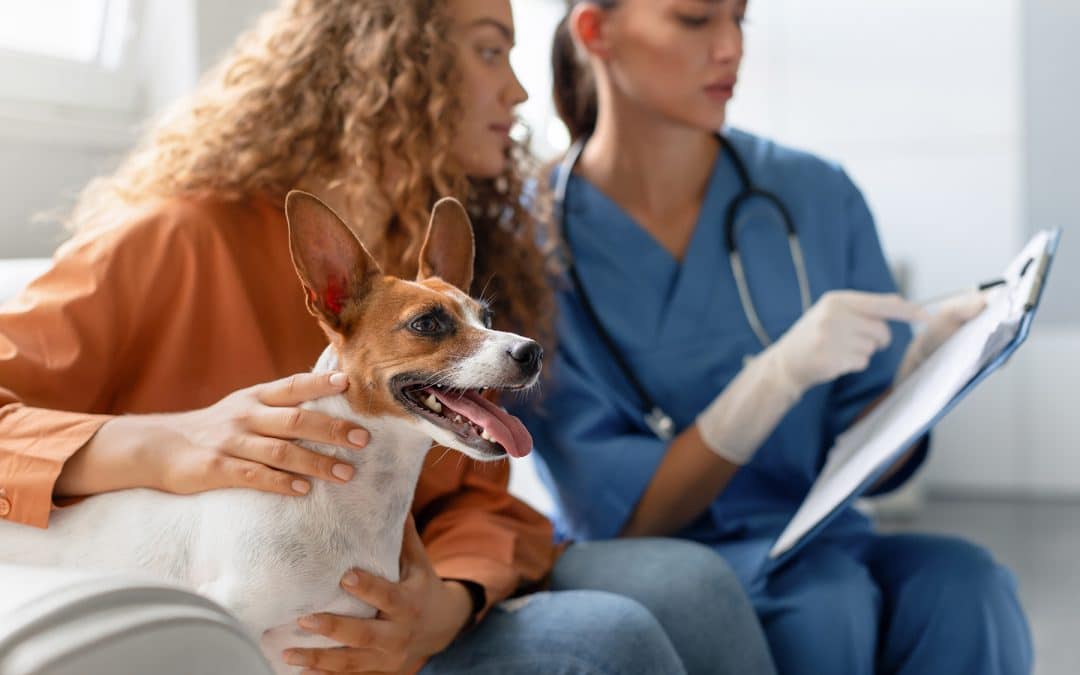Regular veterinary visits are crucial to ensuring the long-term health and well-being of your pet. Avoiding these appointments can lead to undetected health issues that may worsen over time, potentially resulting in costly emergency care or irreversible conditions. A well-planned vet visit schedule based on your pet’s needs—considering factors like age, breed, and lifestyle—ensures that your furry friend receives comprehensive care at every stage of life.
Expect Kindness & Compassion
Comprehensive Veterinary Care for Your Four-Legged Family Member.
The Importance of Regular Veterinary Appointments
- Early Detection of Health Issues: Regular check-ups help identify health problems early, when they are more treatable. Conditions like dental disease, heart conditions, and diabetes can be caught before they become serious.
- Common Diseases: Early detection of dental disease, heart conditions, and diabetes.
- Importance of Blood Tests and Diagnostic Imaging: Blood tests and imaging can uncover hidden health issues, ensuring timely treatment.
- Preventive Care: Preventive vet care during regular visits helps keep your pet healthy and reduces the risk of serious conditions.
- Vaccinations and Boosters: Regular vaccines and boosters protect against deadly diseases.
- Parasite Prevention: Preventive treatments for fleas, ticks, and heartworms safeguard your pet’s health.
- Nutritional Assessments: Tailored dietary advice keeps your pet on a healthy track.
- Strengthening the Pet-Owner-Vet Relationship: Frequent visits build a strong bond with your vet, ensuring personalized care and reducing your pet’s anxiety during visits. This relationship is key to maintaining your pet’s long-term health and well-being.
Recommended Veterinary Appointment Schedule
General Guidelines Based on Life Stages
Puppies and Kittens
During their first year, puppies and kittens require several initial visits for vaccinations, deworming, and wellness checks. Spaying or neutering is typically recommended around six months of age, along with discussions on diet and training.
Adult Pets
Once your pet reaches adulthood, annual wellness exams become essential. These visits include a thorough physical examination, dental check-ups, and any necessary booster vaccinations. Regular monitoring during this stage helps catch any emerging health issues early.
Senior Pets
As pets age, their healthcare needs increase. Senior pets benefit from bi-annual exams, which focus on monitoring for age-related issues like arthritis, diabetes, or kidney disease. More frequent check-ups allow for early intervention and management of these conditions, ensuring your pet remains comfortable and healthy in their golden years.
Specialized Visits
In addition to routine check-ups, certain situations require specialized veterinary visits:
- Dental Cleanings and Oral Health Assessments
- Reproductive Health Checks
- Dermatology Consultations
- Emergency Visits
What Does a Typical Vet Appointment Look Like?
- Initial Greeting and History Review: The vet team will welcome you and review your pet’s medical history, discussing any recent changes or concerns.
- Physical Examination: Your vet will examine your pet from head to tail, checking eyes, ears, mouth, skin, and more. They’ll assess your pet’s weight and overall condition.
- Vital Signs and Tests: Vital signs like temperature and pulse are taken. They may recommend routine tests, such as blood work or a urine analysis, to check for hidden issues.
- Preventive Care: Your vet will discuss vaccinations, parasite prevention, and nutrition. Any needed vaccines or treatments are administered during the visit.
- Treatment Recommendations: Based on the exam, your vet may suggest treatments, such as dental cleanings or dietary changes, to improve your pet’s health.
- Q&A and Next Steps: Finally, they answer questions you may have and outline any follow-up care needed, ensuring you’re fully informed about your pet’s health.
Schedule a Veterinary Appointment in Gallatin, TN
By staying proactive with your pet’s healthcare, you can catch potential issues early, provide essential preventive care, and ensure they receive the best possible treatment. Don’t wait until a problem arises—schedule your next vet appointment with Bluegrass Veterinary Hospital in Gallatin, TN, today to keep your furry friend on the path to a long, healthy life.
Dr. Benjamin L. Zimmerman, DVM
Dr. Benjamin L. Zimmerman, co-owner of Bluegrass Veterinary Hospital, has been dedicated to veterinary medicine since he was eight, inspired by a formative experience on his uncle’s chicken farm. With extensive hands-on experience on various farms, he values educating pet owners about their furry companions. When not caring for animals, he enjoys playing the fiddle, cooking, and spending time outdoors with his family and pets.


